Spring has (nearly) sprung, so why not put the cleaning on hold and immerse yourself into a good book. Here’s what the ECI team are reading as the days get longer.
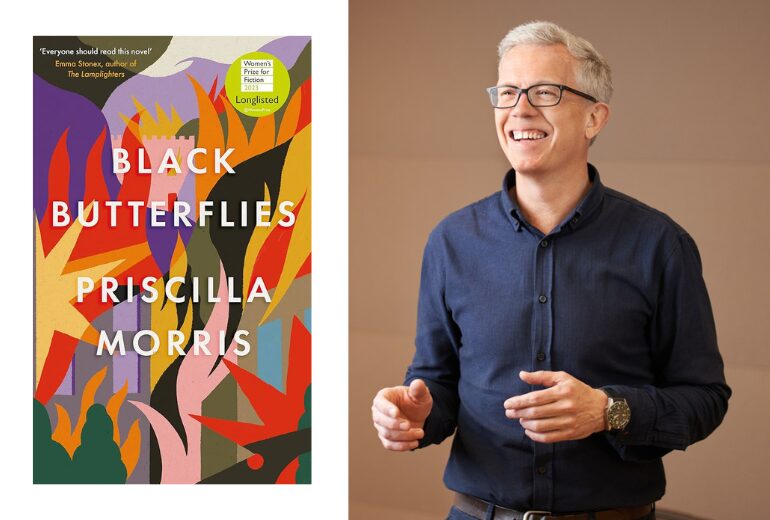
Jeremy Lytle
The Black Butterflies by Priscilla Morris
Today we are sadly all too familiar with the horrors of war from Ukraine (over the past two years) and more recently the daily grim news from Gaza. But this novel takes us back to 1992 and the outbreak of conflict in the Balkans. It felt genuinely shocking at that time that a war had started in Eastern Europe, the former Yugoslavia. My university flatmate had visited only months before.
Set in 1992 this is a story of the start of the siege of Sarajevo (the first 10 months of what would become a 44-month siege). The central character is a fifty-five-year-old painter and Professor of Art, Zora Kočović. This is at times heartbreaking and bleak as it recounts the slow drudgery of war and its impact on the civilian population of the city. As the trapped citizens of Sarajevo are slowly deprived of necessities such as freedom of movement, heat and lighting, food and then running water.
But amidst all the bleakness there is also hope and love. Neighbours come together and support each other. Zora, the artist and her bookseller neighbour look out for each other and at times it can be strangely uplifting.
The Black Butterflies of the title are themselves a metaphor of hope over the destruction of the extensive library at the Academy of Fine Arts.
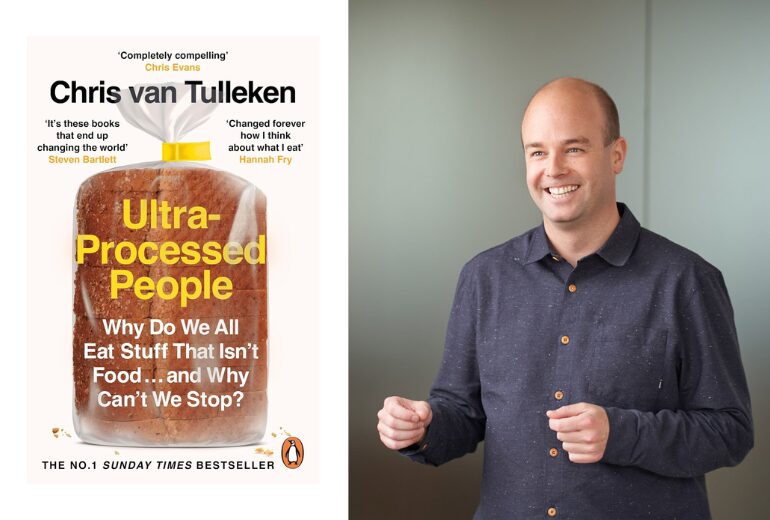
Duncan Ramsay
Ultra Processed People by Chris van Tulleken
A fascinating journey through the world of modern food, from what goes into it, how it’s sold to us, and the effects it has on the body, on society, and on the planet. As you can imagine, after reading the book you gain a newfound appreciation for ingredient labels… and what exactly things like Xanthan Gum are (it’s probably better not to know).
My key learning is that while there isn’t really a decent demarcation of what is good/bad on the ultra processed food spectrum, and just because things are marketed as “healthy” or “good” doesn’t mean that they aren’t in fact ultra processed – the low-fat vegan sriracha mayo and one particular brand of oat milk in my fridge gave me a fright! The best bet is to stick with cooking your own food rather than buying anything pre-prepared.
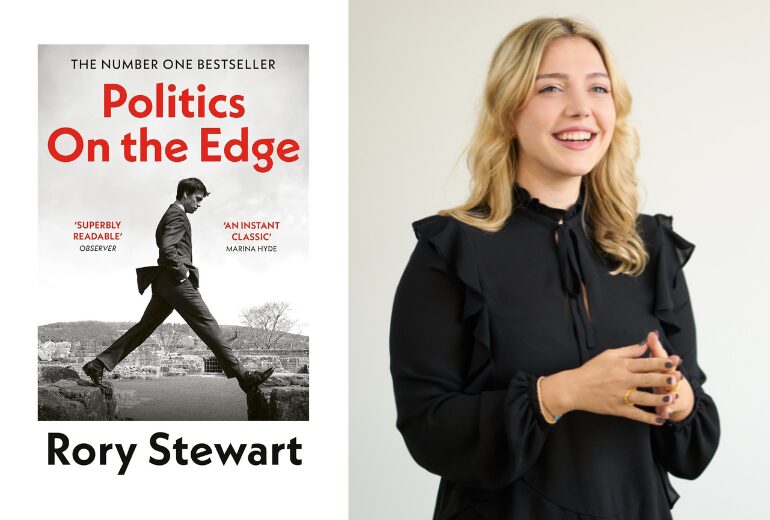
Mia Smith
Politics on the Edge by Rory Stewart
An insightful, at times terrifying insight into the world of Westminster and local government. Rory Stewart has had an undeniably impressive career – diplomatic service in Jakarta and Iraq, aid work in Afghanistan, teaching posts at Harvard and Yale, local and national UK government positions, including an unsuccessful party leadership run against Boris Johnson.
His book covers all of these, majoring on the inner workings of David Cameron and Theresa May’s governments. While I wasn’t expecting it all to be roses, the finer details of how parliamentary votes are whipped and senior positions apportioned proved quite uncomfortable reading. For all the sobering political revelations, it was also really interesting to find out more about traditionally less “high profile” ministerial positions e.g. Secretary of State for Prisons and Probations, a role Stewart held for a year or so and used to campaign against statutory minimum sentencing.
Even if you aren’t aligned with Stewart’s politics (as I am not), his experience allows him to offer a unique perspective for anyone interested in learning more about modern UK politics.
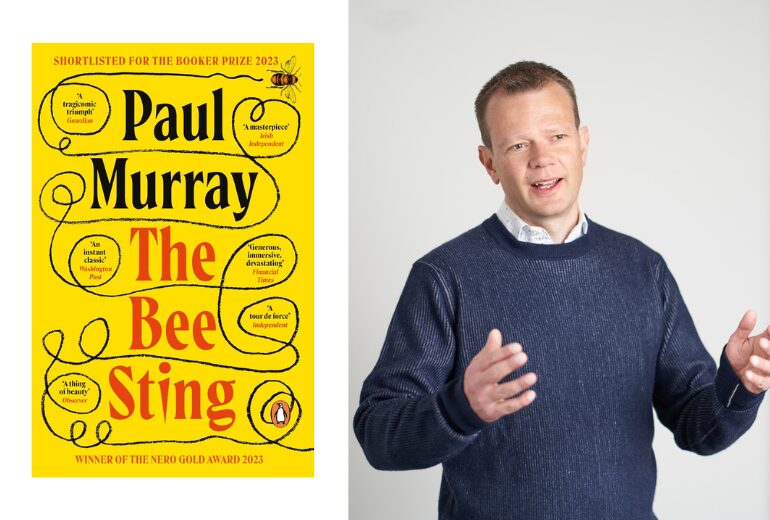
Chris Watt
The Bee Sting by Paul Murray
Having enjoyed another of Paul Murray’s books (Skippy Dies) a while ago, I bought his latest, The Bee Sting, last summer for a bit of holiday reading but have only just got around to it. Perhaps I was put off by it being over 650+ pages, but I shouldn’t have worried as it’s a compelling read, full of sharp, lively dialogue which tells the tale of a successful Irish family whose fortunes take a turn for the worse. The author does this though the eyes of each family member in turn, revealing their secrets and past traumas along the way. The book is fast-paced, humorous and suspenseful, if ultimately rather poignant and sad.
There is no obvious link to the world of private equity but, without giving away any spoilers, I think it’s fair to say that Maurice Barnes, the grandfather in the story and founder of Maurice Barnes Motors, the family business, could have done with some serious help and support regarding his succession planning!
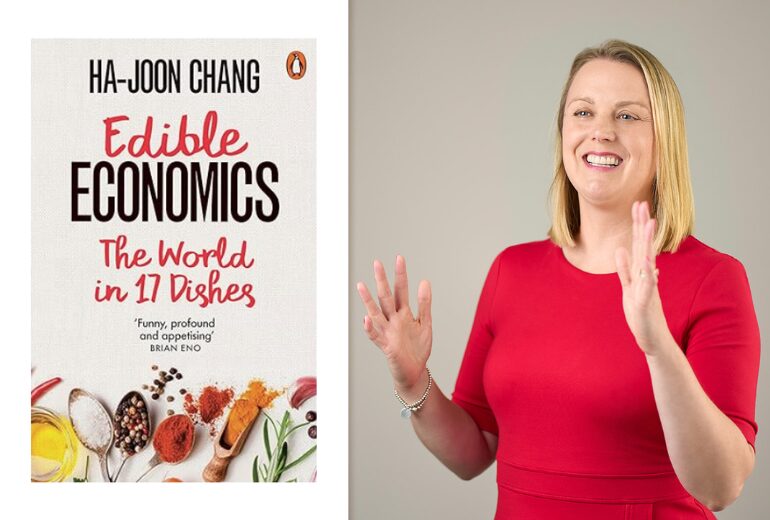
Nikki Knobel
Edible Economics by Ha-Joon Chang
On the way home one evening I walked into the bookshop at Waterloo Station and spotted ‘Edible Economics’. I tend to navigate towards cookery books and as my daughter is studying economics at school, I thought this would be a good book for us both to read – and it is.
The author, Ha-Joon Chang, takes you on a mini world tour, providing a brief glimpse of staple food history and exploring how they have helped strengthen economies. Conversely, it also examines how industrialisation and changes in production have had negative impacts. It was an easy read, pitched at the right level for someone (like me) who isn’t an economist, but it did leave me craving the South Korean food!

